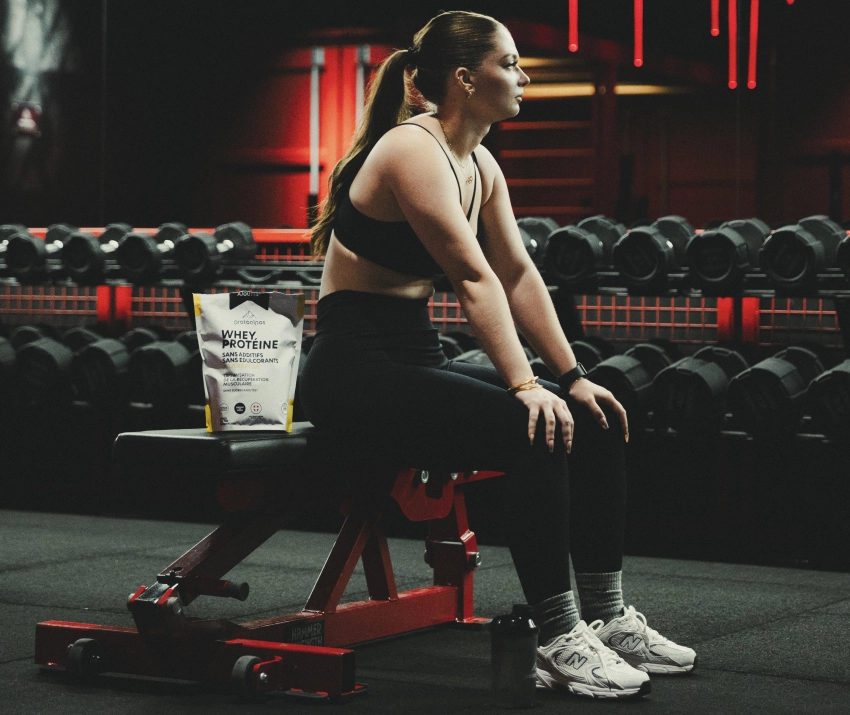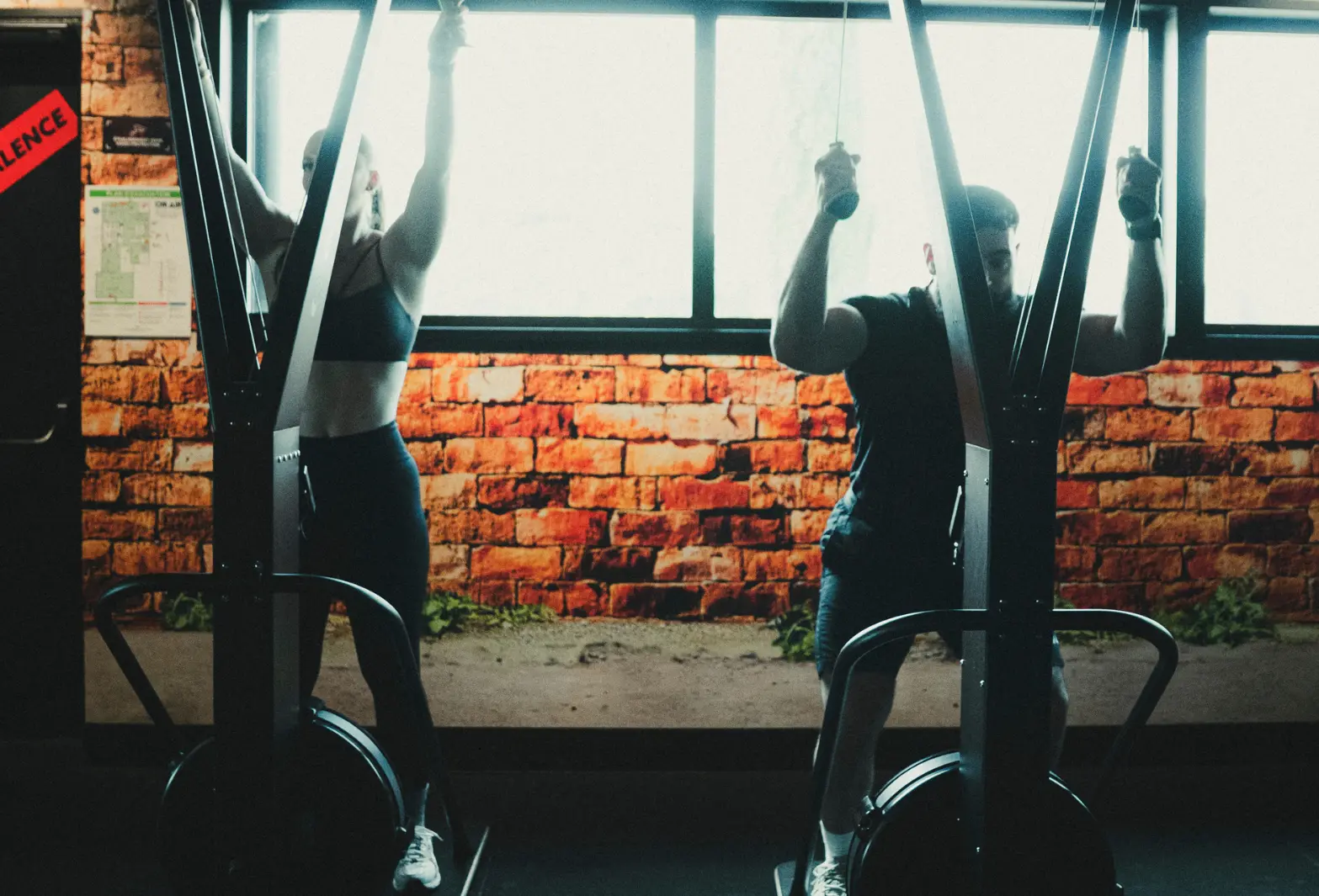Proteins are a pillar of muscle building. Not only do they support muscle growth and the maintenance of lean body mass, they are also involved in the functioning of numerous physiological mechanisms. Their role in muscle building and overall health is inseparable from sporting performance.
Contrary to popular belief, protein intake is not just for professional athletes, but for everyone, as a complement to a balanced and varied diet, which remains essential. Protein can be consumed as a powdered supplement or via protein-rich foods such as red meat, fish, milk, eggs or plant-based sources (pulses, cereals, oilseeds).
Depending on your objectives and needs, the quantity to be ingested differs, and is taken in small increments over the course of a day. Let's take a closer look at how much, when and how to consume proteins for bodybuilding, and more importantly, their benefits for the body and their contribution to muscle development and performance.
Proteins: the basis of muscle
What is a protein?
Protein is a macromolecule, made up of a set of amino acids linked by what are known as peptide bonds. To put it more simply, this chain of amino acids is often compared to pearls linked by string, or bricks by cement.
It's also a nutrient found in large quantities in meat and fish, as well as in legumes, cereals and oilseeds.
This is why protein is referred to as a macronutrient, just like carbohydrates and lipids, which are also macronutrients.
The role of proteins in muscle fiber
Proteins have a dual role in the body: structural and functional.
On the one hand, they contribute to the structure of certain muscle and skin tissues (structural role). In muscles,actin and myosin are two proteins that form muscle fibers. They are said to be contractile, as they are responsible for muscle contraction, hence their importance in bodybuilding!
Collagen is also a structural protein that surrounds muscle fibers and tendons, giving them their elasticity and strength.
On the other hand, proteins are involved in physiological mechanisms (functional role) such as :
- immune responses, in the form of antibodies;
- oxygen transport, in the form of hemoglobin ;
- digestion in the form of digestive enzymes.
In the muscles, proteins are used for all chemical reactions, such as energy production through the use of fats or glucose, or repair after exercise.
The role of dietary proteins in bodybuilding
Protein renewal
Muscle is a living tissue that is constantly being destroyed and rebuilt thanks tothe action of proteins, which must also be renewed, since they are its constituents.
The breakdown of muscle proteins, or catabolism, contrasts with the synthesis of muscle proteins, oranabolism.
The muscle oscillates between these two mechanisms. And to achieve thehypertrophy desired in bodybuilding, anabolic activity must be greater than catabolic activity. In simple terms, muscle protein synthesis must exceed muscle protein degradation.
The importance of nutrients...
Physical activity is a stimulus that triggers a series of physiological mechanisms, including the consumption of large quantities of protein.
During training, muscle fibres undergo natural micro-lesions. With food or protein powder, the human body ingests the amino acids it needs to repair these lesions.
Depending on what has been ingested during training and through the diet, the body chooses whether toactivate muscle synthesis or degradation, thanks to a protein which plays the role of site manager: mTORC1.
... and complete proteins
The mTORC1 protein kinase acts as a switch, a critical point, and requires leucine (one of the essential amino acids supplied by the diet) and training to get it going¹.
Once activated, protein synthesis takes place, resulting in :
- more actin and myosin, for greater muscle strength;
- more collagen, and therefore better elasticity;
- more enzymes, for optimal energy production.
That's why essential amino acids (EAAs) are essential for building muscle. There are many dietary proteins, and not all of them are the same. Whatwe look for in sports nutrition is complete proteins.
Physical training + intake of essential amino acids = mTORC1 activation = muscle synthesis

Protein and muscle recovery
Muscle fiber repair
After a workout, proteins provide essential amino acids to muscle fibers damaged by exercise. It's thanks to these BCAAs (Branched Chain Amino Acids) that the body recovers and rebuilds itself physically.
We often hear talk of the " metabolic window", a period of several hours after exercise during which protein intake promotes muscle protein synthesis. Some studies refute the fact that there is a narrow post-exercise window which maximizes protein intake², while others continue to affirm it.
The consensus in the scientific literature is that protein intake should be regular throughout the day and, above all, sufficient to meet the needs of the athlete³.
More specifically in relation to bodybuilding, it seems worthwhile to consume rapidly assimilated proteins such as Whey in the post-exercise period (30 min to 2 h), even if the main thing remains the overall daily protein dose.
The response to inflammation
One of the most common types of muscle pain is muscle soreness. This inflammatory mechanism of the muscle follows the accumulation of training-related waste.
The muscle eliminates this waste and then rebuilds the damaged muscle fibers, resulting in painful sensations.
Pain intensity depends on a number of factors, including hydration, sleep anddiet. Proteins, especially those rich in leucine, help repair damaged fibers. Sufficient protein intake helps reduce the intensity of muscle soreness by limiting excessive inflammation.
Protein requirements and sources
Muscle-building athletes therefore have every interest in consuming protein to achieve their goals and avoid the risk of muscle wasting. But they need to know which proteins to consume and in what quantities.
How much protein do you need for bodybuilding?
The International Society of Sports Nutrition recommends a positive protein balance for building and maintaining muscle mass. This requires an overall daily intake of between 1.4 and 2.0 g of protein per kilo of body weight per day (g/kg/d), depending on the target objective.
Some data even suggest that a higher intake, in excess of 3.0 g/kg/d, would have a positive impact on the body composition of body-builders³. However, our advice at Protéalpes is not to exceed a dose of 2.0 g/kg/d, to avoid what are probably unnecessary excesses.
These recommendations vary from person to person, depending on age, intensity of training and objectives.
When should you eat your protein?
What's also important is the regularity of intake, to ensure that the body gets plenty of high-quality protein, every 3 to 4 hours throughout the day.
Protein doses suitable for post-workout consumption ideally contain between 2,000 and 3,000 mg leucine, with a balanced overall intake of essential amino acids (EAAs)³.
Dietary proteins or supplements?
It's not always easy to choose between dietary proteins and supplements.
It's important to know that physically active people can cover their protein needs with their diet, provided it's adapted and balanced.
These proteins are found in meat, eggs and fish, as well as in cereals, legumes and oilseeds.
Nevertheless, supplementation with quality powders is a practical way of increasing intake or guaranteeing any athlete a protein of high biological value and in sufficient quantity. This is the advantage of dietary supplements, which also serve to minimize caloric intake in relation to protein intake, which can be of interest to athletes during weight loss or muscle lean periods.
Conclusion
No muscle gains without protein. An essential component of bodybuilding and nutrition (along with carbohydrates and lipids), protein is inherently linked to and inseparable frommuscle mass growth. Whether it comes from protein-rich foods or in isolated form, such as whey protein, it is well suited to an intense weight training program.
Every meal, from breakfast to post-workout snacks, helps you achieve your goals. The amount of protein consumed based on body weight ensuressufficient energy intake for muscle development. The best strategy for taking advantage of the effects of protein in bodybuilding is to adjust your consumption so that your body receives between 1.4 and 2 g per kilogram of body weight. This rate helps optimize muscle mass gain, muscle repair, and increase the lean mass/fat mass ratio.
Scientific references and sources
2Pre- versus post-exercise protein intake has similar effects on muscular adaptations by Brad Jon Schoenfeld et al
3International Society of Sports Nutrition Position Stand: protein and exercise by Ralf Jäger
To find out more :














